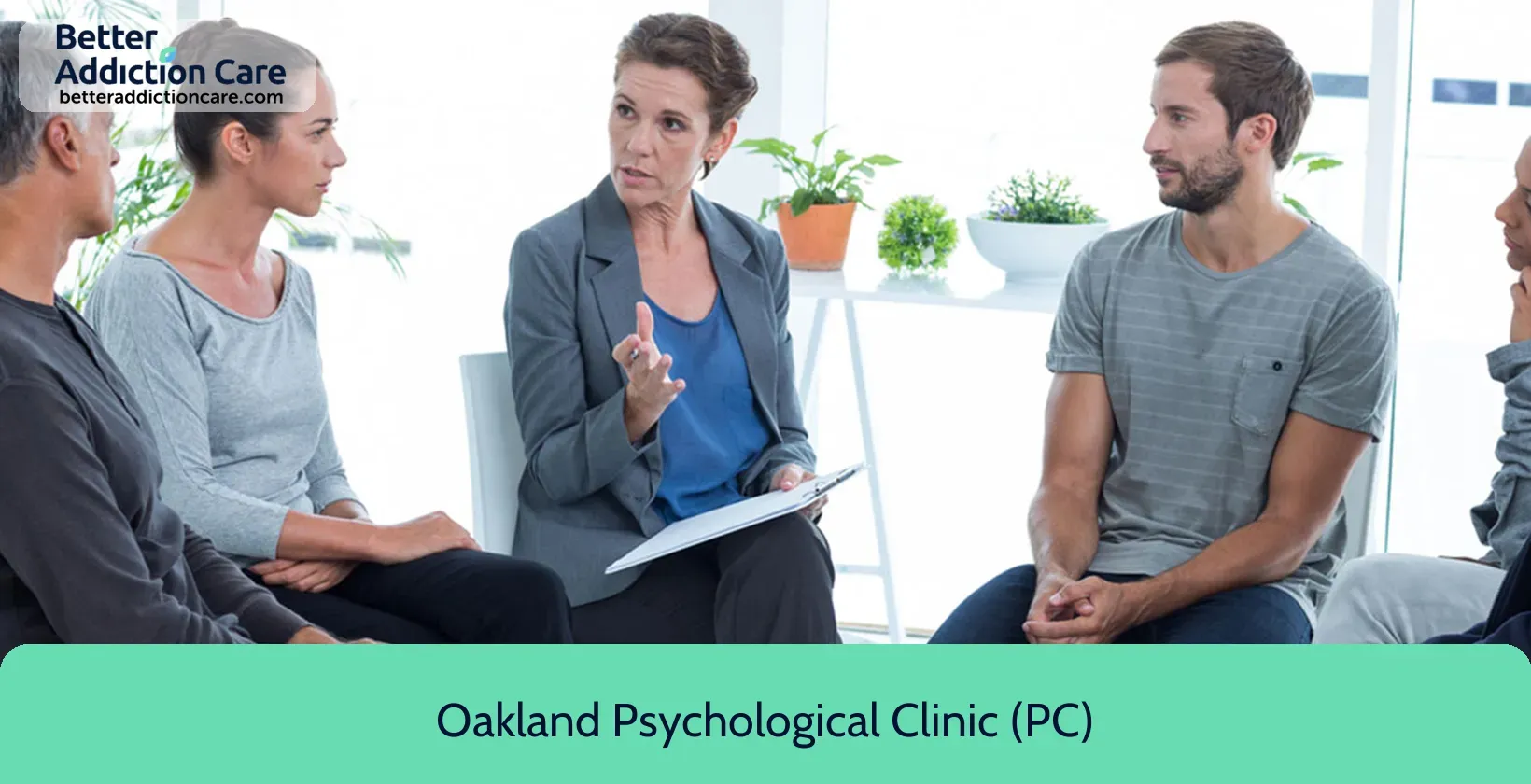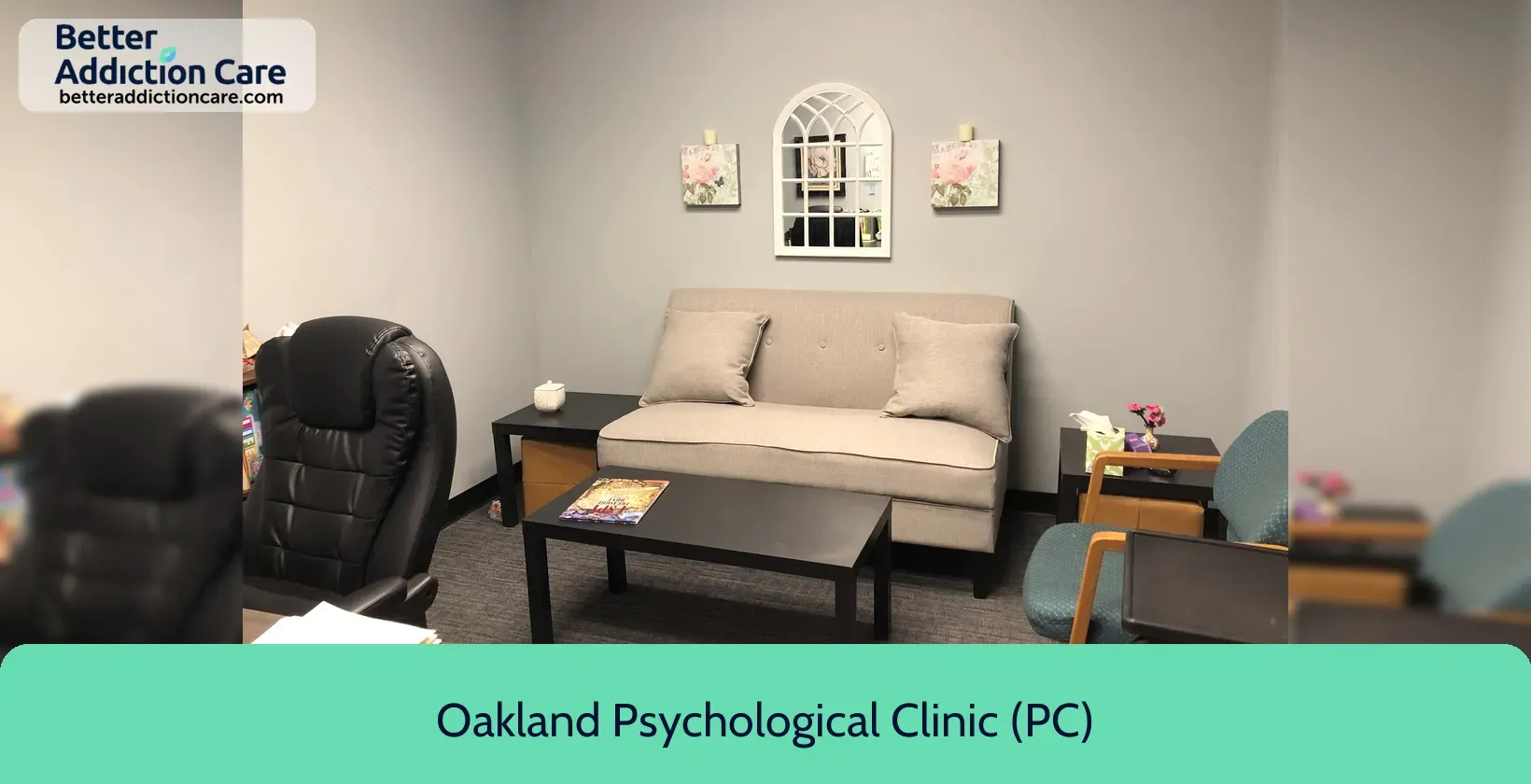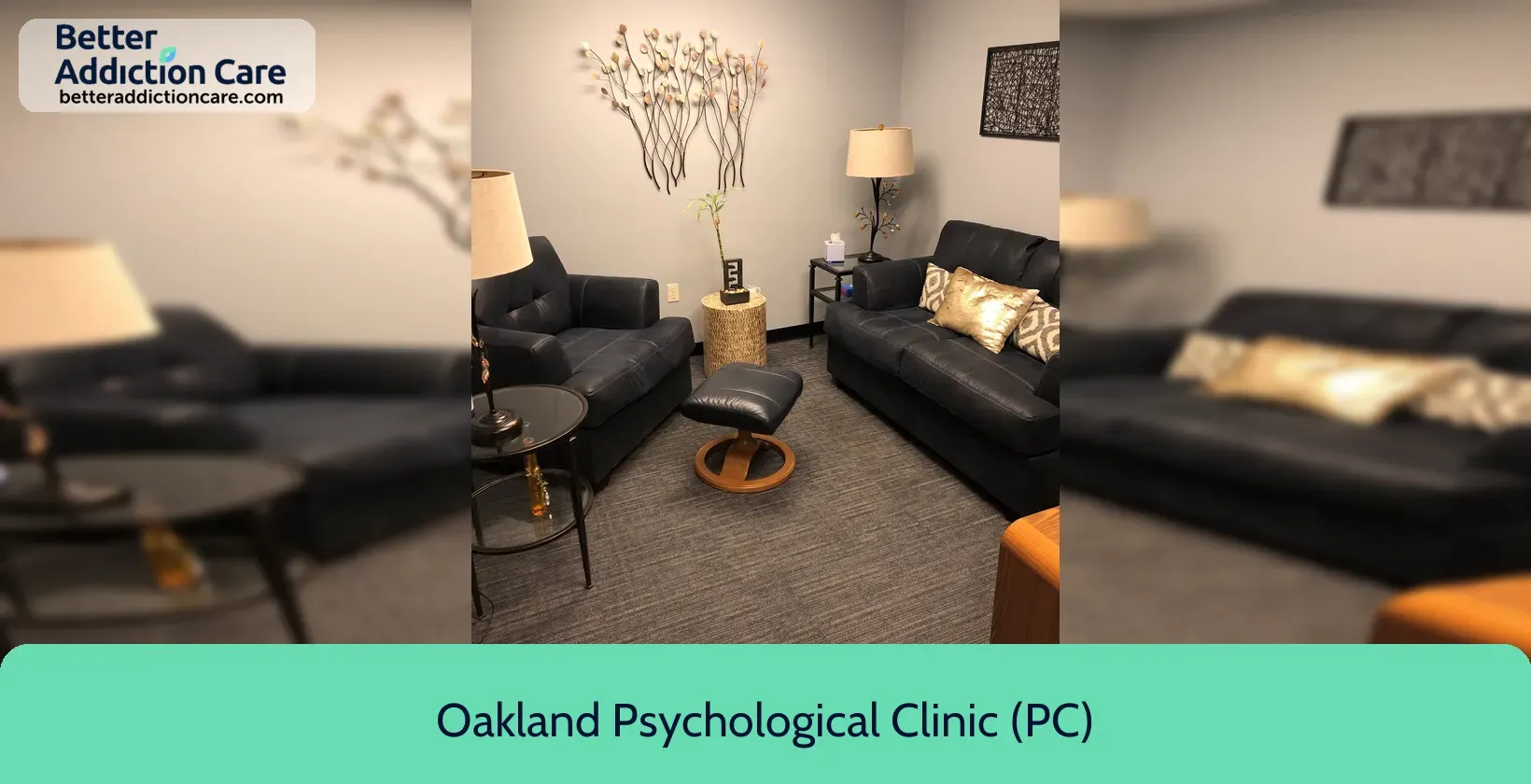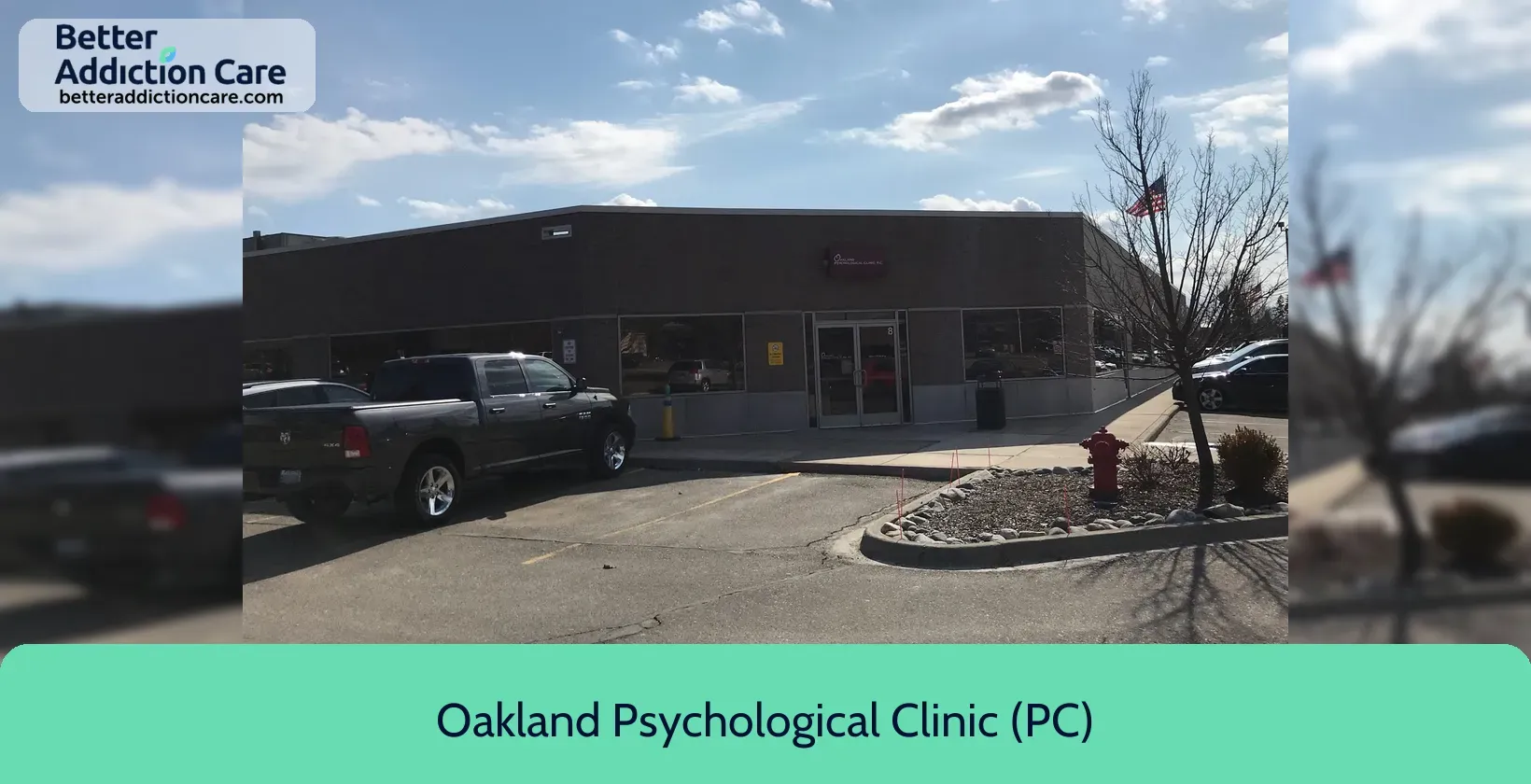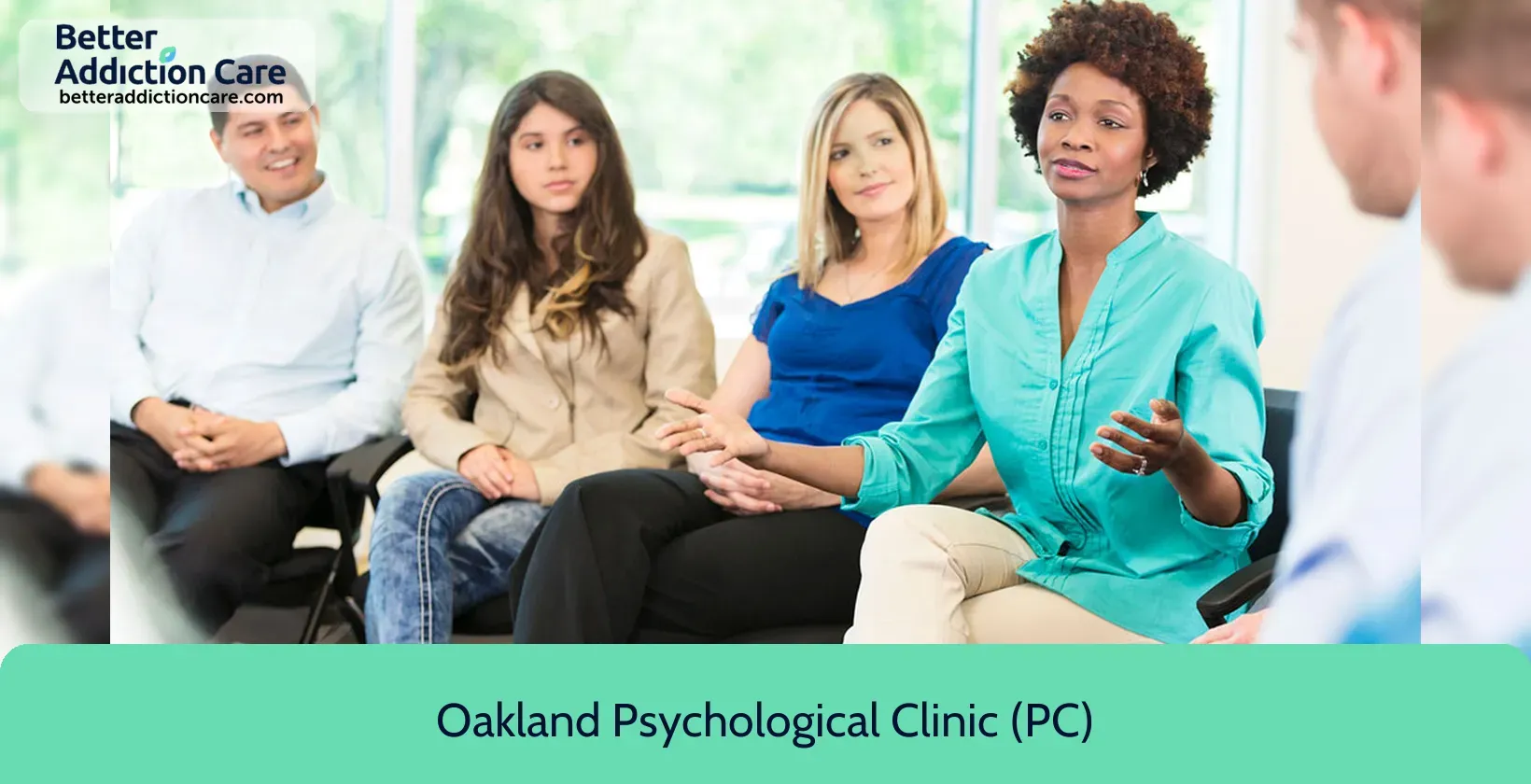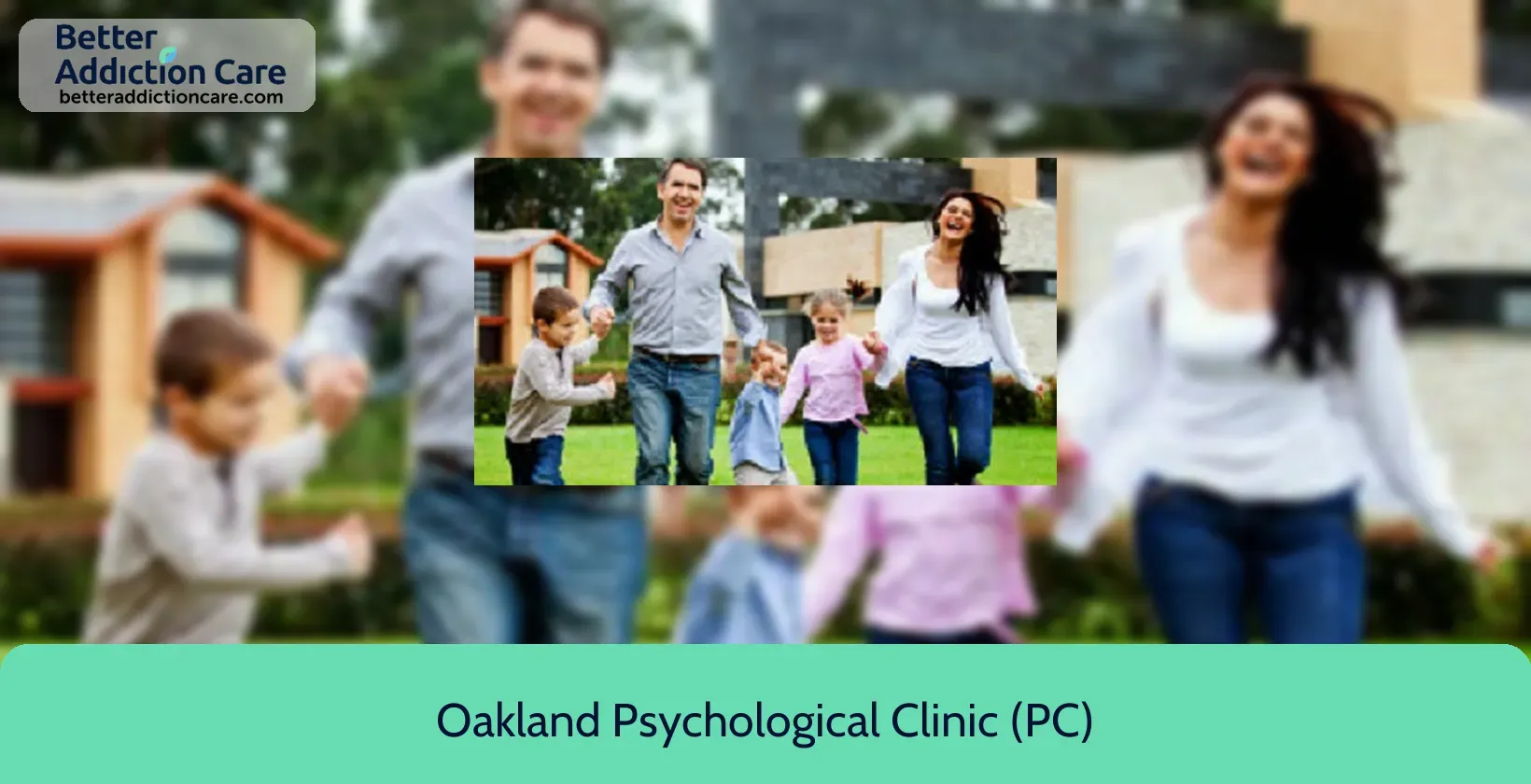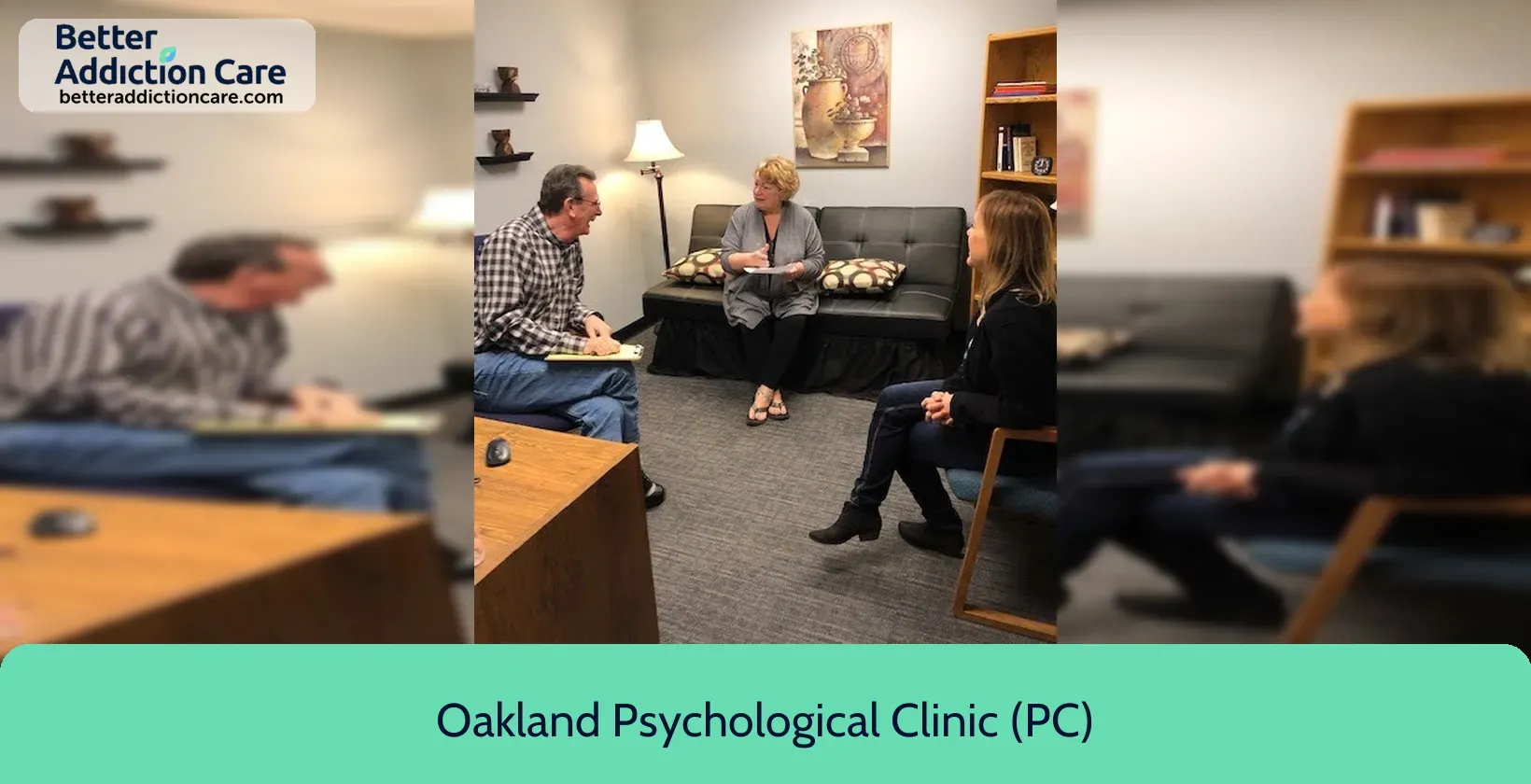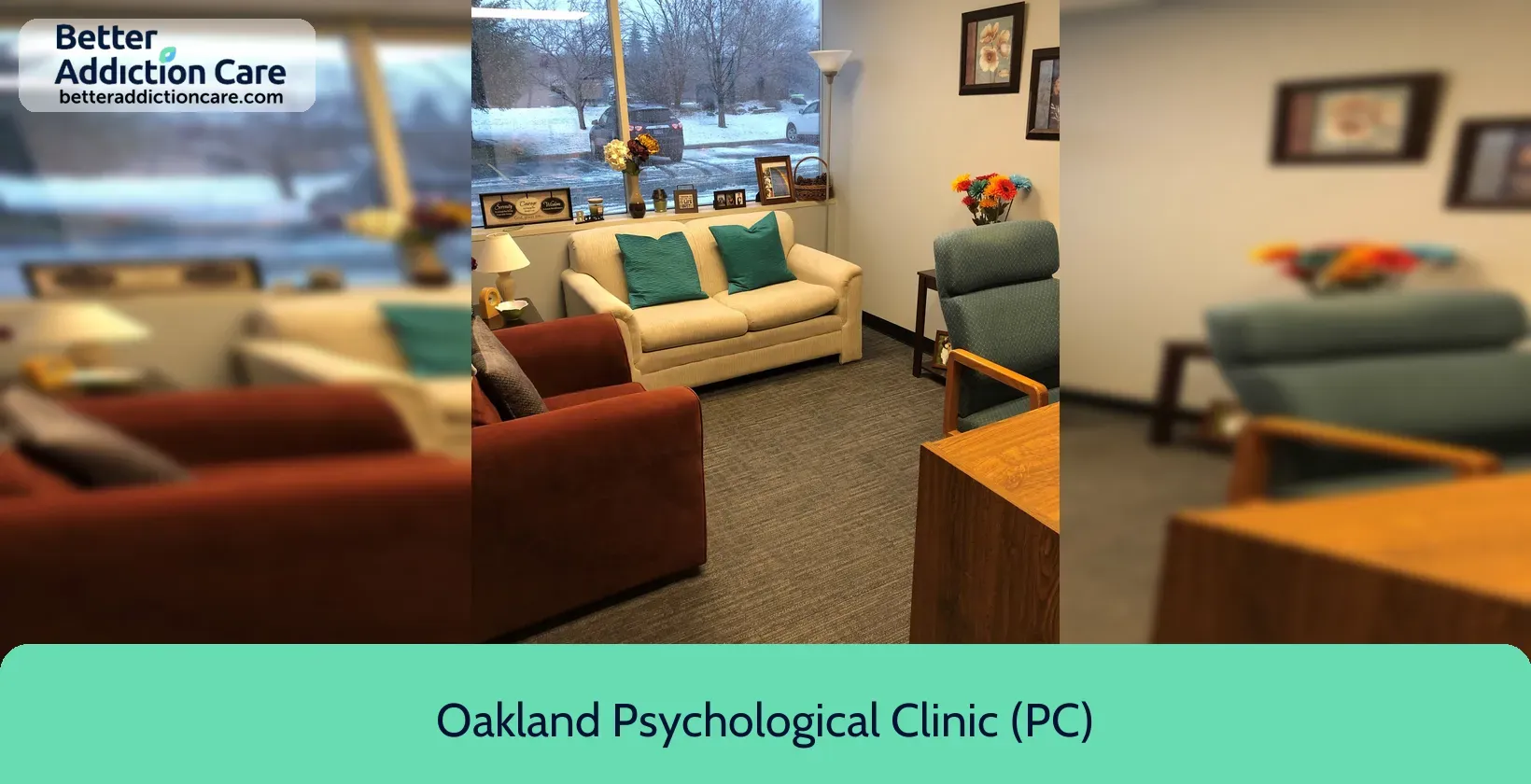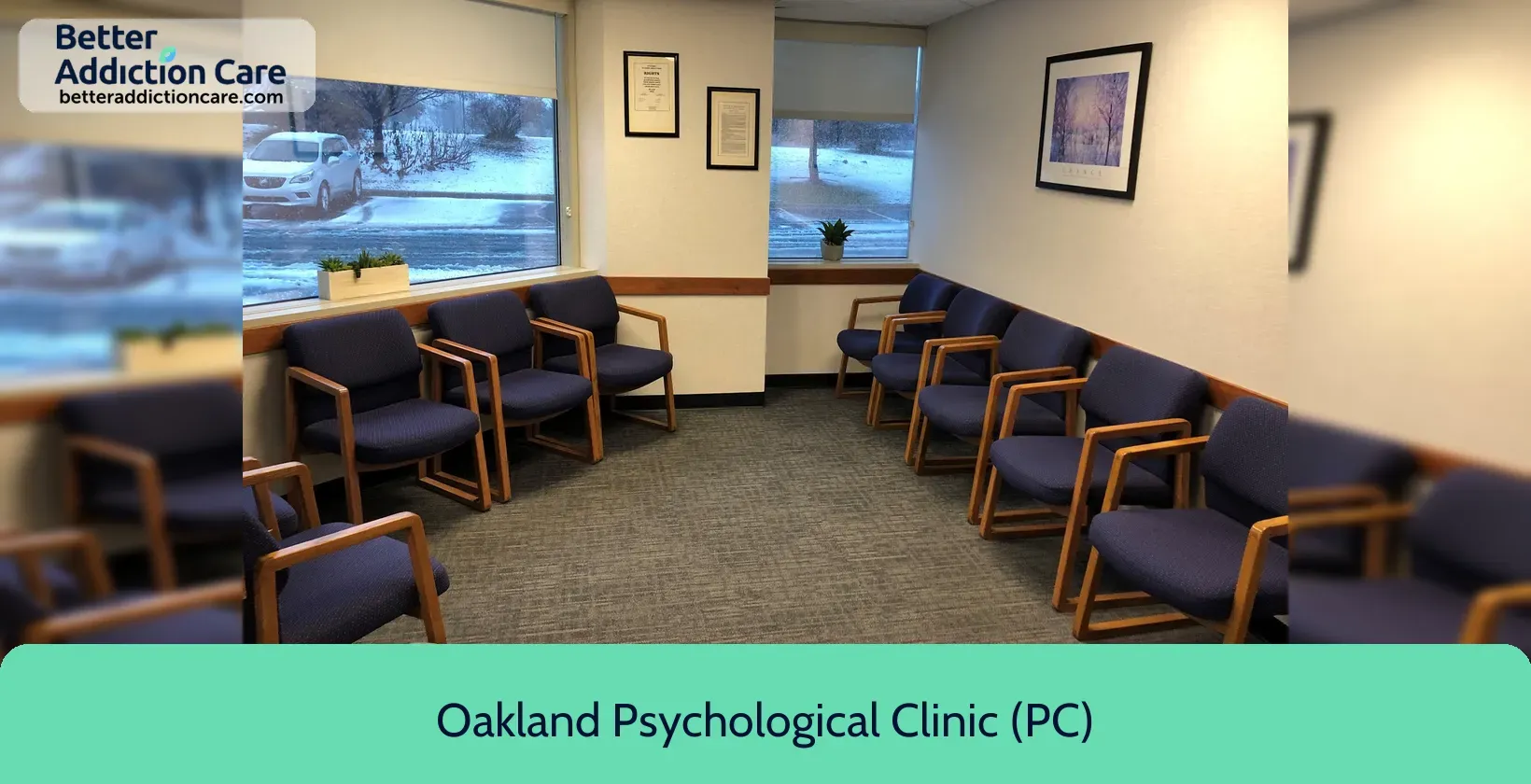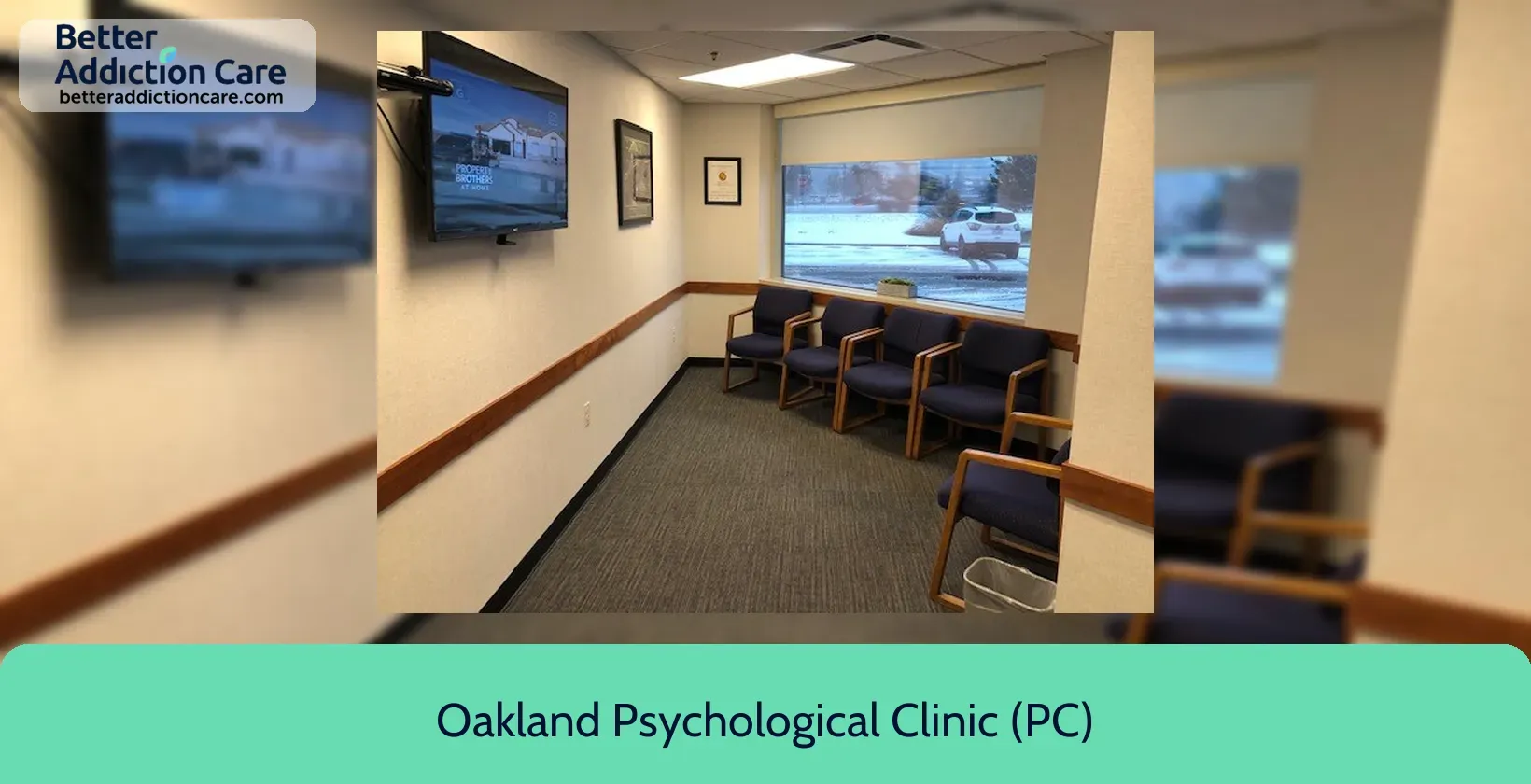Oakland Psychological Clinic (PC)
Overview
Oakland Psychological Clinic (PC) is an accredited substance abuse treatment center that provides outpatient treatment for men and women between 18 and 65+ years of age. As part of their special programs, Oakland Psychological Clinic (PC) treats clients who have experienced trauma. To help patients achieve sobriety, Oakland Psychological Clinic (PC) provides intake assessments. Afterward, patients receive cognitive behavioral therapy, telemedicine/telehealth therapy, and substance use disorder counseling during treatment. Oakland Psychological Clinic (PC) is located in Lake Orion, Michigan, providing treatment for people in Oakland County, accepting cash or self-payment, medicare, and private health insurance.
Oakland Psychological Clinic (PC) at a Glance
Payment Options
- Cash or self-payment
- Medicare
- Private health insurance
- Federal military insurance (e.g., TRICARE)
- Aetna
Assessments
- Comprehensive mental health assessment
- Comprehensive substance use assessment
- Screening for mental disorders
- Screening for substance use
Age Groups
- Adults
- Seniors
- Young adults
Ancillary Services
- Mental health services
Highlights About Oakland Psychological Clinic (PC)
7.12/10
With an overall rating of 7.12/10, this facility has following balanced range of services. Alcohol Rehabilitation: 8.00/10, Drug Rehab and Detox: 6.62/10, Insurance and Payments: 6.67/10, Treatment Options: 7.21/10.-
Alcohol Rehabilitation 8.00
-
Treatment Options 7.21
-
Insurance and Payments 6.67
-
Drug Rehab and Detox 6.62
Accreditations
The Joint Commission:

The Joint Commission, previously known as JCAHO, is a nonprofit organization that accredits rehabilitation organizations and programs. Established in 1951, its mission is to enhance the quality of patient care and showcase excellence in healthcare delivery.
Effective date: 04/15/2017
Registration: 1199
SAMHSA certification for opioid treatment program (OTP):
Accreditation by the Substance Abuse and Mental Health Services Administration (SAMHSA) for Opioid Treatment Programs (OTPs) signifies that a program has met strict standards for providing high-quality care to individuals with opioid use disorders. It assures patients, families, and communities that the OTP follows evidence-based practices, employs qualified staff and maintains a safe and effective treatment environment. This accreditation reflects the program's commitment to addressing the opioid epidemic and promoting recovery.
State department of health:

Government agencies issue State Licenses, granting rehabilitation organizations permission to operate their businesses lawfully within specific geographic regions. The specific licenses needed for legal operation are typically determined by the type of rehabilitation program offered by the facility and its physical location.
Treatment At Oakland Psychological Clinic (PC)
Treatment Conditions
- Alcoholism
- Substance use treatment
Care Levels
- Outpatient
- Regular outpatient treatment
Treatment Modalities
- Cognitive behavioral therapy
- Telemedicine/telehealth therapy
- Substance use disorder counseling
- Trauma-related counseling
- Treatment for gambling disorder
Ancillary Services
Additional Services
- Pharmacotherapies administered during treatment
- Discharge Planning
- Drug or alcohol urine screening
Special Programs
- Clients who have experienced trauma
Contact Information
Read our Most Recent Article About Drug Addiction
DISCLAIMER: The facility name, logo and brand are the property and registered trademarks of Oakland Psychological Clinic (PC), and are being used for identification and informational purposes only. Use of these names, logos and brands shall not imply endorsement. BetterAddictionCare.com is not affiliated with or sponsored by Oakland Psychological Clinic (PC).
